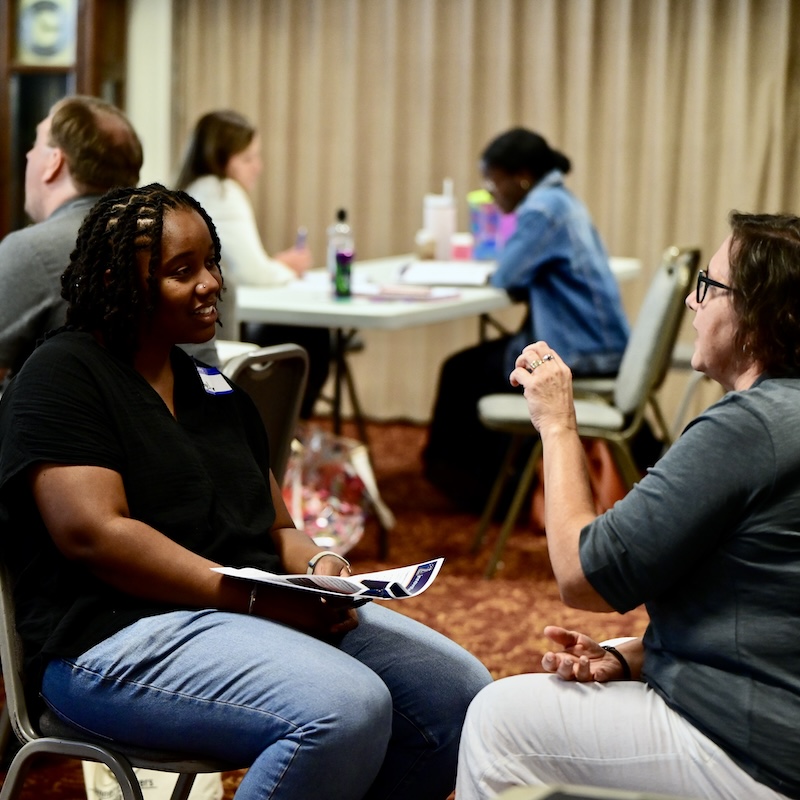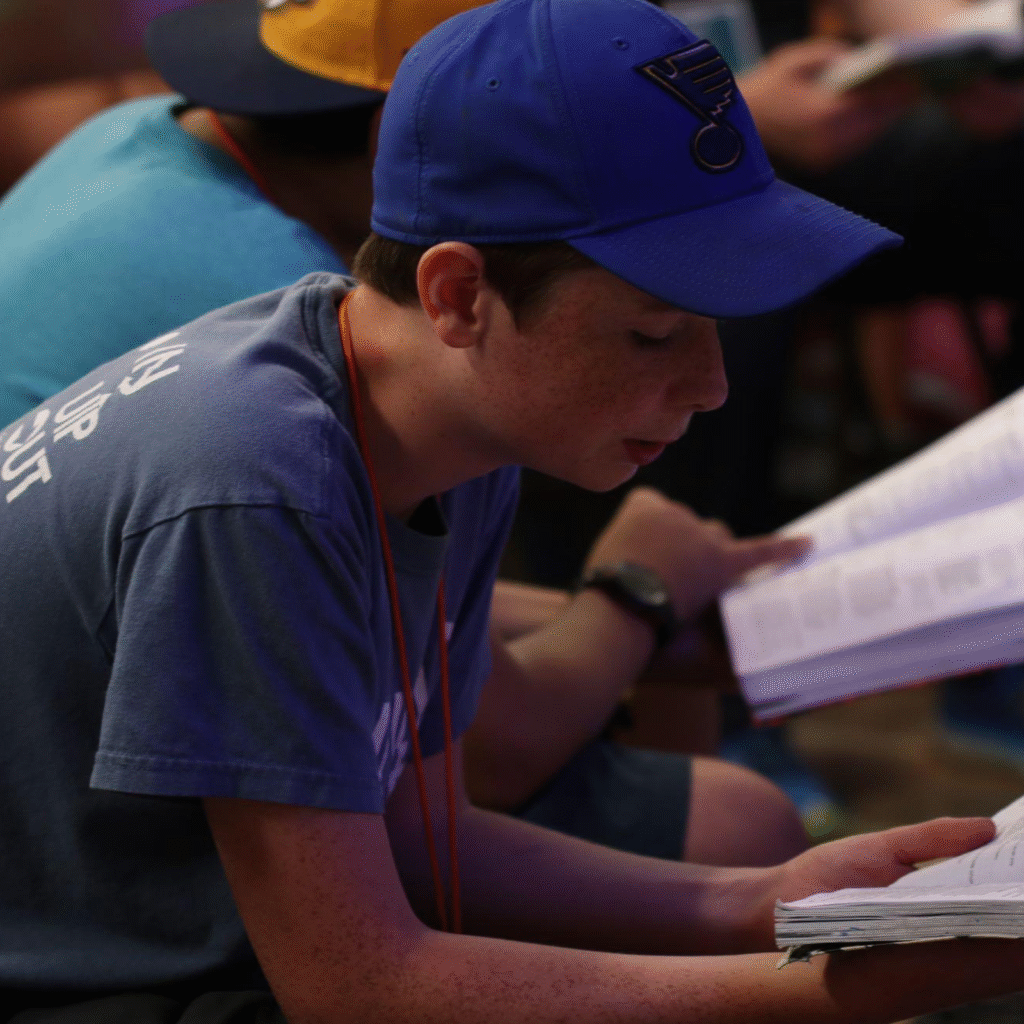

Kristia Oney has felt called to serve with young people for as long as she can remember. She got her first church job as a part-time youth pastor at age 21 and started working at her church full-time as soon as she graduated college.
Soon after, though, she started feeling frustrated and hamstrung by a church culture that limited and misunderstood her. Kristia was intensely interested in helping young people integrate the world around them – their lived, felt experiences – into their understanding of themselves, their world, and God. To her, faith is embodied; because God chose to come to us in the form of a human body in Jesus, we have to understand our faith through our experience of being in a living body. Kristia didn’t want to do ministry in the abstract, talking about concepts and themes that had nothing to do with the daily life of young people, she wanted to meet them where they were. Those around her didn’t always get it. Reflecting back, she remembers the frustration,=
“People had such a limited view of what ministry could be.”
So, like so many youth pastors, after just a few years, she quit and, feeling disillusioned, left church work altogether. Kristia still loved young people, and although she wouldn’t have named it as ministry at the time, she continued to walk alongside teenagers.
Kristia became a yoga instructor focusing on teenagers and tweens; she worked in an eating disorder recovery clinic providing supportive therapies and created mindfulness spaces, particularly for those in a clinical setting.
She eventually joined some church plants and non-traditional worship gatherings, which then turned into leadership and an opportunity to serve in church ministry again. Kristia was hesitant but gave it a chance and partnered with CYMT as a graduate resident.
Sitting in one of Dr. Andrew Zirschky’s classes, she learned the practical theological method, a way of integrating lived and felt experiences into one’s practices and understanding of faith, and it was like a lightbulb went off – not because the idea was new, but because it was so familiar.
“I learned there were words for what I had already felt, and other people thought this way. The way I thought about ministry? I wasn’t wrong.”
Through practical theology and the experience of the Innovation Lab, Kristia found that not only was there space for the way she had thought about ministry but that it was celebrated. There was a whole community of people who felt like she did and were just as committed to helping shape a future of ministry to young people that is broader, more dynamic, and more exciting than what came before.
Kristia now serves as the associate director of the Wesley Foundation at Oklahoma State University. In her role there, she manages a team of college-age interns and coaches them as they shape their own programming for themselves and their peers. Her training and education in CYMT have given her the language to not just teach the students a set of information but the tools to interpret all of their lives through their faith.

When asked what the definition of ministry is for her, Kristia articulated that “our understanding of ministry has to be as expansive as our understanding of God.” Kristia has always been called to minister to young people, but it wasn’t until CYMT that she saw that all of the things she had done, from church work to mentoring college kids to yoga therapy, were ministry.
Kristia’s imagination for how God can meet young people is big, and she isn’t wrong.
Actually, we at CYMT think she might be exactly right.
If you are like Kristia and feel that tug towards faithful following but aren’t sure you can fit into the box of what you have been told a youth minister looks like, know that the box is much bigger than you imagined. CYMT is committed to helping build a future of walking alongside young people in faith that is much bigger than just one model. Talk to us, attend an event, and we can discover together what that work’s next chapter can look like.


